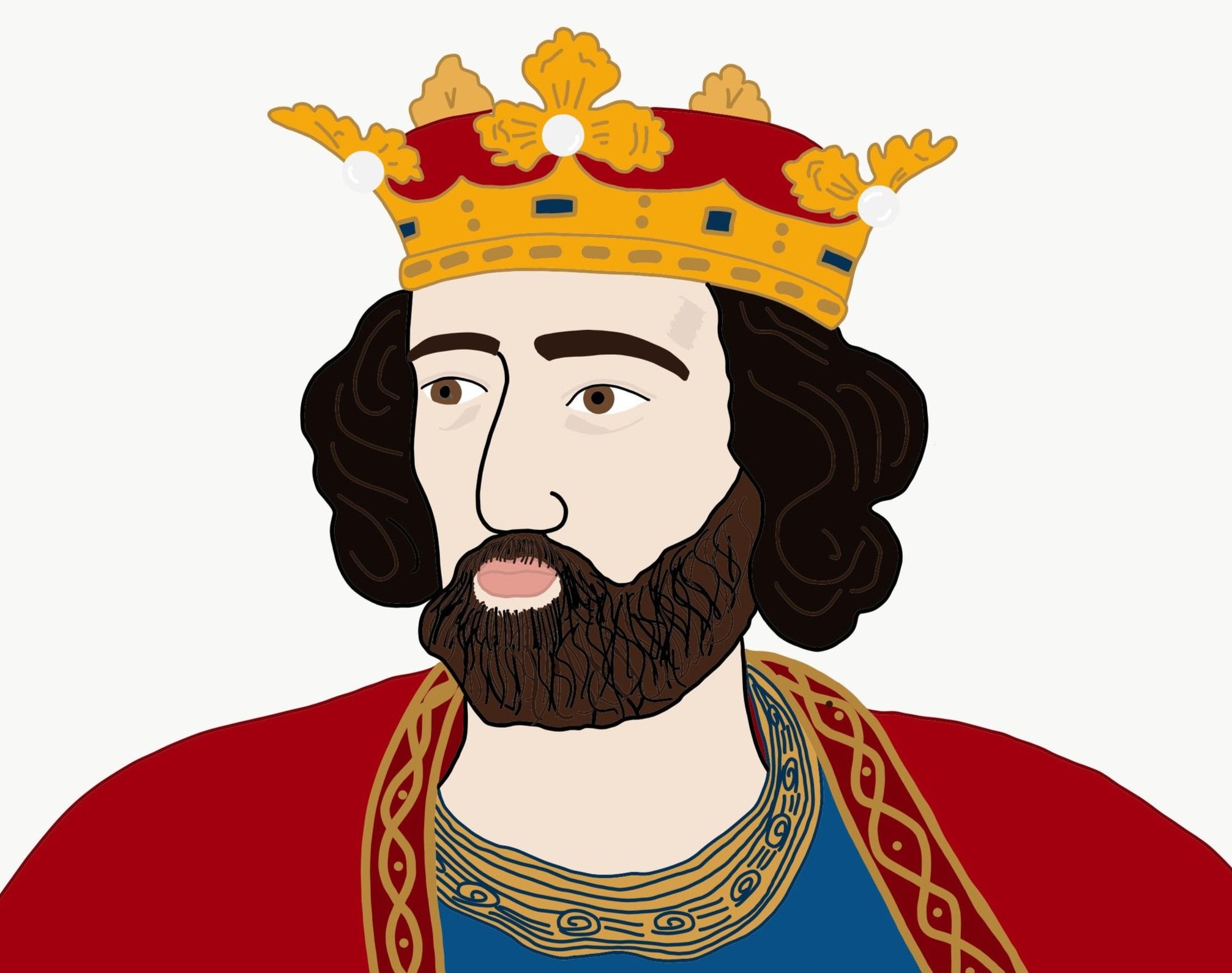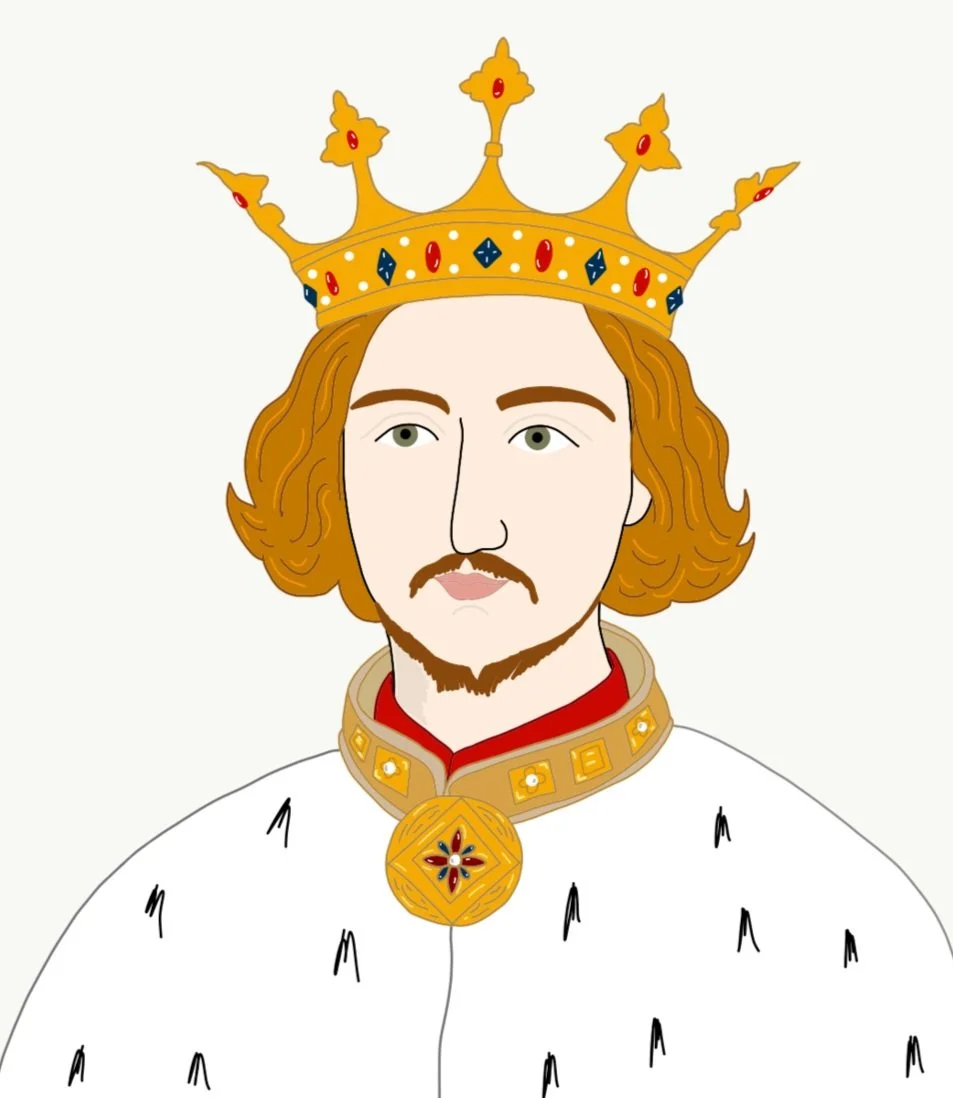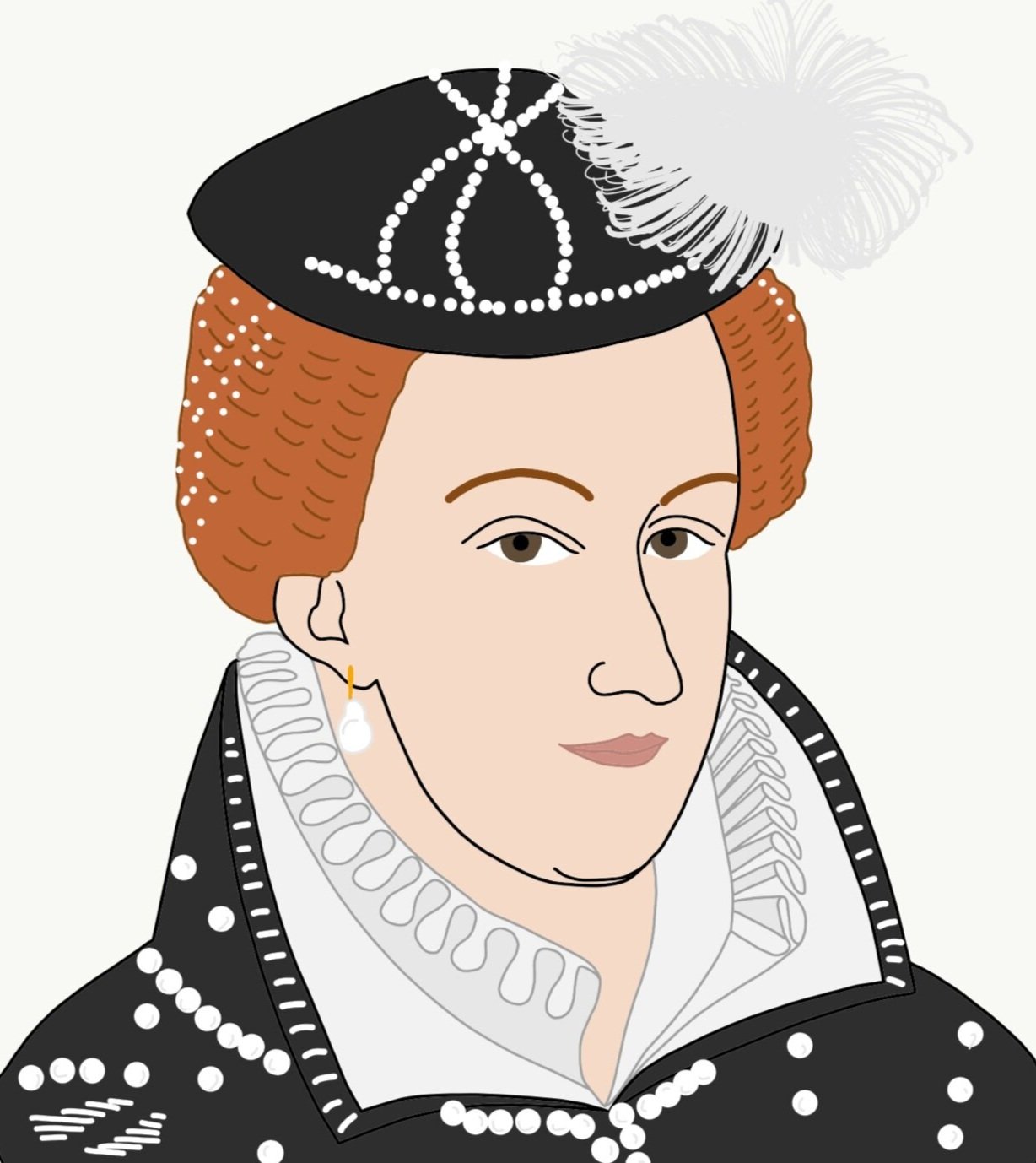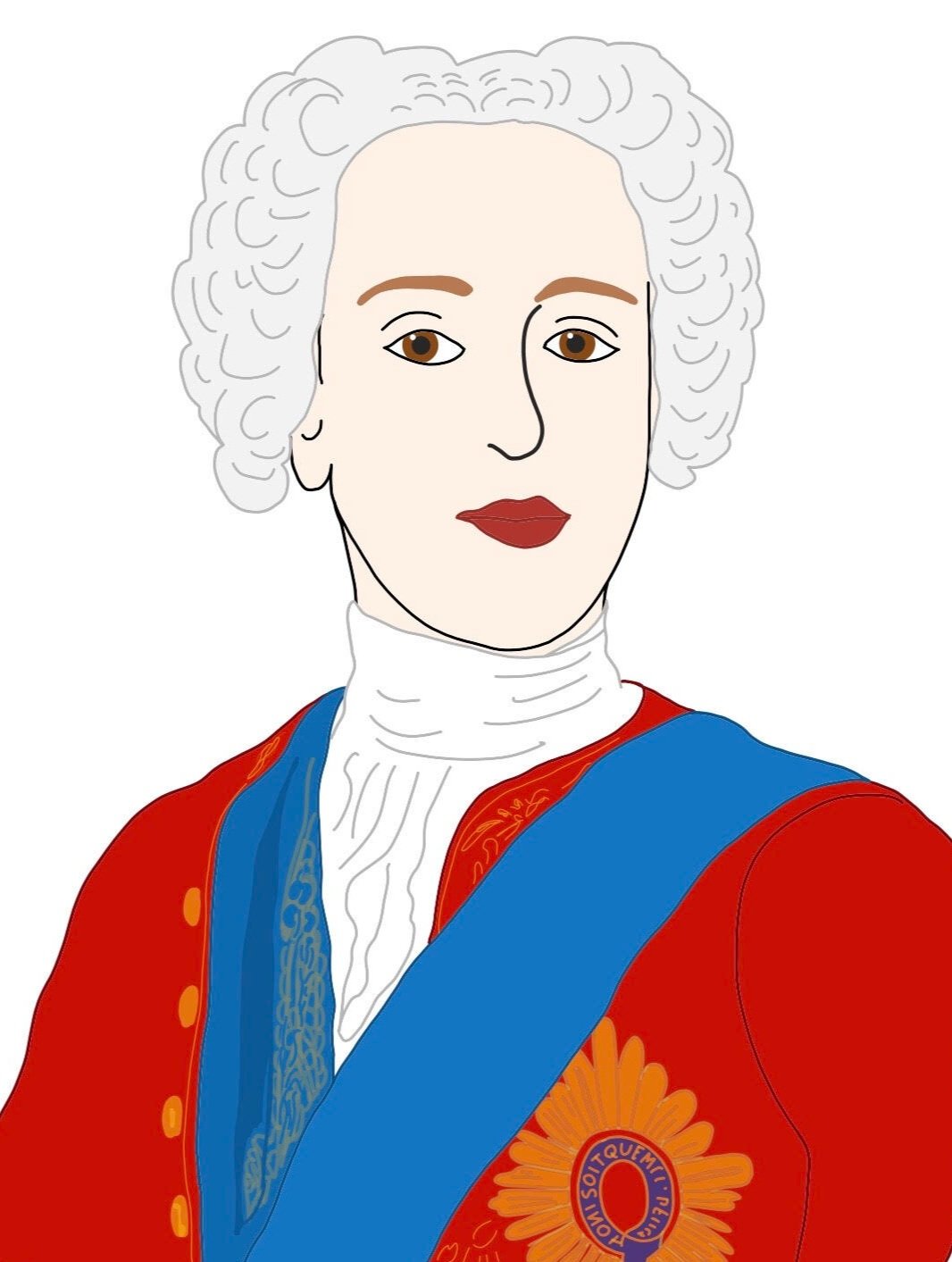August 15th - 21st
“Henry is friends with the Pope; a world war comes to an end; Pilgrims set off for a New World; India is free; a massacre occurs in Manchester; and a telegraph across the Atlantic takes 16 hours...”
On 15th August…
1057 - King Macbeth of Scotland was killed in battle by Malcolm, a son of King Duncan who Macbeth had killed 17 years earlier.
1620 - The pilgrim ships the Mayflower and the Speedwell set sail from Southampton carrying 102 pilgrims on their journey to America where they planned to establish the first permanent colony. The pilgrims were seeking religious freedom and a fresh start in a country where they would be able to worship God without the persecution of the Church of England. (Religion was a strict business in the times of the Tudor and Stuart monarchies, and you could be executed for not following the same religion as the king or queen.) The two ships had not sailed far before they had to turn back to port to repair the Speedwell which had begun to leak and take on water. On their second attempt to sail across the Atlantic Ocean disaster struck again. This time they had managed to travel about 300 miles before the Speedwell began taking in water again, the decision was made to return to port for repairs. As the saying goes, ‘third time lucky’ - this time the Speedwell remained in England whilst the already overcrowded Mayflower took on board as many more people as she could carry and set off for America and new beginnings.
1769 - Napoleon Bonaparte was born in Corsica, an island in the Mediterranean Sea belonging to France. He was a French military leader and politician who became Emperor of France and conquered much of Europe during the early 1800s.
1945 - Japan surrendered unconditionally to the Allied Powers (Great Britain, USA, France, China, and the Soviet Union) ending World War II. Their surrender was accepted, and celebrations took place across the Allied nations. We continue to show our gratitude and remember this day, now known as VJ Day (victory in Japan) with a show of celebrations around the world.
1947 - Following the signing of the Indian Independence Act in July by King George VII, India became a free nation, independent of the United Kingdom. The day is celebrated every year in India and by Indian communities around the world.
1950 - Princess Anne, daughter of Queen Elizabeth II was born in London.
On 16th August…
Henry VIII defends the Pope at Battle of the Spurs
1513 - King Henry VIII and the Holy Roman Emperor Maximilian I defeated France at the Battle of the Spurs at Guinegate near Calais in France. The battle was part of the Italian wars (1494-1559) and Henry VIII had agreed to defend the papacy from its enemies and France. (This was before he fell out with the pope and set up the Church of England.)
1819 - In Manchester, England the Peterloo Massacre happened when cavalry soldiers charged at demonstrators and began hacking at them with their swords. Thousands of people had been peacefully demonstrating for the right to vote and to have a say in parliament. Fifteen people were killed, including women and children and over six hundred people were injured by the cavalry soldiers paid for by rich locals.
Queen Victoria sends the first telegraph to America
1858 - Queen Victoria sent the first official telegraph across the Atlantic to President James Buchanan of the USA. The message took 16 hours to send by morse code through 2,500 miles of cable which had been laid under the Atlantic Ocean. Unfortunately, the cable did not last long before breaking down.
On 17th August…
1510 - Sir Richard Empson and Edmund Dudley were executed on the orders of the young king Henry VIII. Empson and Dudley were notorious and unpopular officials employed by Henry’s father, Henry VII. They used aggressive and violent tactics against people who owed money to the crown. King Henry VIII wanted to show his subjects that his reign would be very different to that of his father and his first step was to execute two of his father’s unpopular officials. They were accused of treason and trying to overthrow the new king, and beheaded at the Tower of London.
On 18th August…
1227 - Genghis Khan founder of the Mongolian empire died. Genghis Khan was a warrior who rose from nothing to become one the most famous warriors of all time. He brought all the nomadic tribes of Mongolia under his rule using a strict military code of conduct. He then concentrated his sights on the people living in lands beyond Mongolia and began to conquer those too. By the time of his death, most of Central Asia, Persia and India and some parts of Eastern Europe were under his control. The Mongol Empire stretched from the Adriatic Sea in Europe to the Pacific coast of China. The Great Wall of China was built by Chinese rulers to keep out the invaders from Mongolia such as Genghis Khan.
On 19th August…
14CE - Augustus Caesar (Gaius Octavius) the first Roman Emperor died. Augustus Caesar was the great-nephew and adopted son of Julius Caesar. His rule brought peace and prosperity to the Roman Empire.
Coronation of King Edward I
1274 - King Edward I was crowned King of England at Westminster Abbey on his return to England from the Crusades. He was named king upon his father’s death in November 1272 but was abroad fighting and did not return to England until 2nd August 1274. He was nicknamed Edward Longshanks because he was 6’2” (188cm) which was very tall for the time.
King Richard II surrenders to Henry Bolingbroke
1399 - King Richard II formally surrendered to his cousin Henry Bolingbroke promising to abdicate in return for his life. King Richard II had become king at the age of ten when his grandfather King Edward III had died. He had been spoilt as a child and expected everything to go his way. This behaviour continued when he became King, and his reign was unpopular amongst some of the nobility.
Whilst he was in exile, Henry’s father died and all of the lands and riches he was due to inherit were confiscated by King Richard II. Henry Bolingbroke returned to England, raised an army, and captured King Richard II without a fight. Henry took the crown and became King Henry IV.
Mary Queen of Scots returns to Scotland
1561 - Mary Queen of Scots returned to Scotland to assume the throne after spending 13 years in France. She had been sent to live at the French Royal Court when she was 5 years old for her own safety and because she was betrothed to Prince Francis, the son of the French king. When she was 15 years old, they married, and a year later, in 1559, he became King Francis II.
Unfortunately, King Francis II died in 1560 and left Mary a widow at only 18 years of age. No longer wanted at the French Court, Mary decided to return to Scotland and resume her duties as Queen of Scotland.
Bonnie Prince Charlie arrives in style at Loch Shiel
1745 - Bonnie Prince Charlie (Charles Edward Stuart) arrived at Loch Shiel by rowing boat in an attempt to challenge his father’s right to the thrones of Scotland and England.
His grandfather was the deposed King James VII and II who had been replaced by King William III and Queen Mary II.
Bonnie Prince Charlie was met by his supporters and at nearby Glenfinnan the young prince raised his flag in Scotland sparking the second Jacobite rebellion.
On 20th August…
1612 - Ten people were accused and found guilty of witchcraft and sentenced to hang at the gallows on the moors outside Lancaster. Although the evidence against them was flimsy, the ten people, eight women and two men, were found guilty and executed. The trial and fate of the Pendle Witches was recorded by the Clerk of the Court, Thomas Potts who published their story in his book, ‘The Wonderfull Discoverie of Witches in the Countie of Lancaster.’
On 21st August…
1689 - Battle of Dunkeld took place near Dunkeld Cathedral between Jacobite clans supporting King James VII and II and government Covenanters supporting King William III (William of Orange). The Covenanters were men (and women) who had won the right to practice their Presbyterian faith. Their newly formed military regiment had no battle experience when they were called upon to defend the town of Dunkeld from victorious Jacobite forces, confident from their win at the Battle of Killiecrankie.
Unlike other battles which took place on an open battlefield, the Battle of Dunkeld took place in the town’s streets and buildings, and by the end of the day the town was left in ruins with the defeated Jacobite forces fleeing into the hills and the Covenanters victorious with their win.
King William IV is born
1765 - King William IV was born in Buckingham Palace, London. He was the third son of King George III and did not expect to become king. When his brother King George IV died without an heir, William became King William IV at the age of 64 years.






